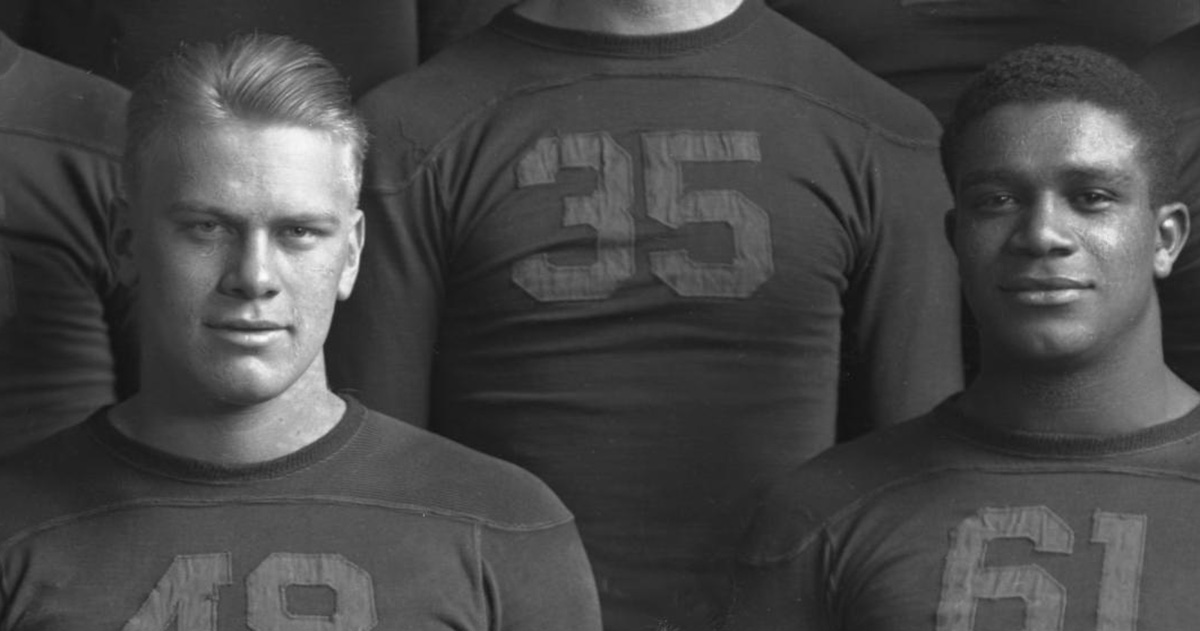When the great U-M football player Willis Ward, ’35, was forced to sit out a game in 1934 because he was black, one friend in particular stood up for him. In fact, teammate Gerald Ford, ’35, HLLD’74, almost quit the team.
That year, as explained in the 2011 documentary “Black and Blue,” Michigan hosted Georgia Tech at Michigan Stadium. Georgia Tech announced in advance of the game that it wouldn’t play against any African-Americans.
Ward, an excellent athlete, had set the national high jump record in high school and then quickly built a national reputation as a track star at U-M. In football, his position was then called end, and roommate Ford played center. Both became an important part of the team, which was undefeated and won national championships back-to-back in 1932 and 1933. Ward was especially integral to the football team’s success in 1933, earning the rare distinction for a junior of All-American honorable mention.
Then came 1934. Athletic Director Fielding Yost had been arranging for months with William Alexander, the head coach of Georgia Tech, for the game in Ann Arbor. Throughout the discussions, however, Alexander and the Georgia Tech staff explained that they refused to play against an African-American, be it Ward or anyone else.
Yost—and eventually many others at U-M—evaded the issue. Word of Georgia Tech’s insistence and Michigan’s avoidance got out to the team, and morale plummeted over the summer. Ford took it particularly hard and eventually wrote to his father that he planned to quit. The only thing that eventually stopped him was Ward, who convinced him that he was only making things harder and that Ford would be a better friend by dropping it.
In the end, Michigan made Ward sit out the game. Michigan went from an undefeated season the year before to 1-7. The only win that year was against Georgia Tech, a game where Ford reportedly made sure his team sent several of the opponents out on stretchers. The Wolverines scored only 12 more points for the rest of the season, and all of them were tallied by Ward.
Both Ward and Ford were recruited to play pro football, but both chose a different path and went on to illustrious careers. Ward went to law school and became a judge in Wayne County, Michigan. He was appointed to the Michigan Public Service Commission by Michigan Gov. George Romney and served as chair.
Ford became a great U.S. Congressman and then, of course, U.S. president. His friendship with Ward is recognized for influencing the stand he took on civil rights and affirmative action.
This story is adapted from one that originally appeared in the late fall 2011 issue of Michigan Alumnus magazine.





